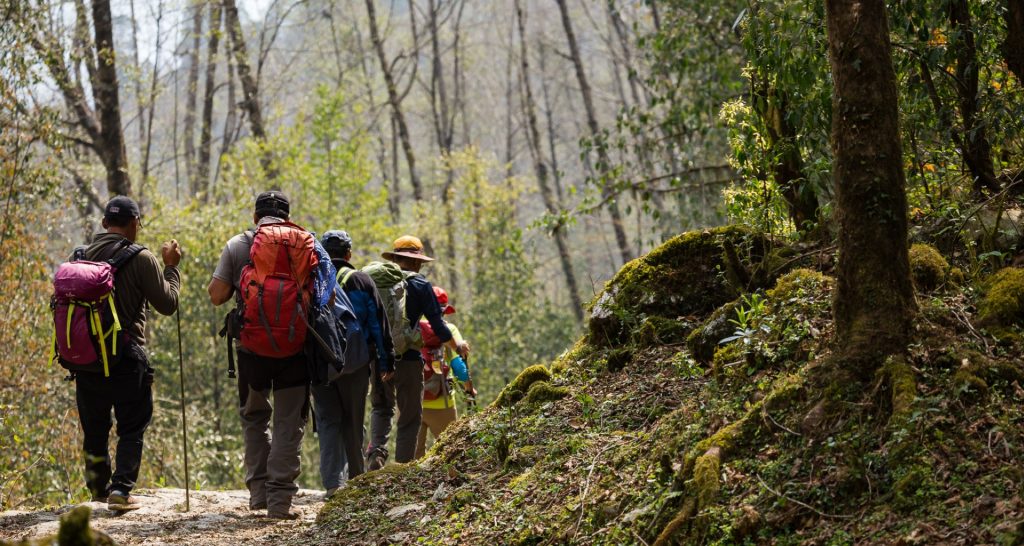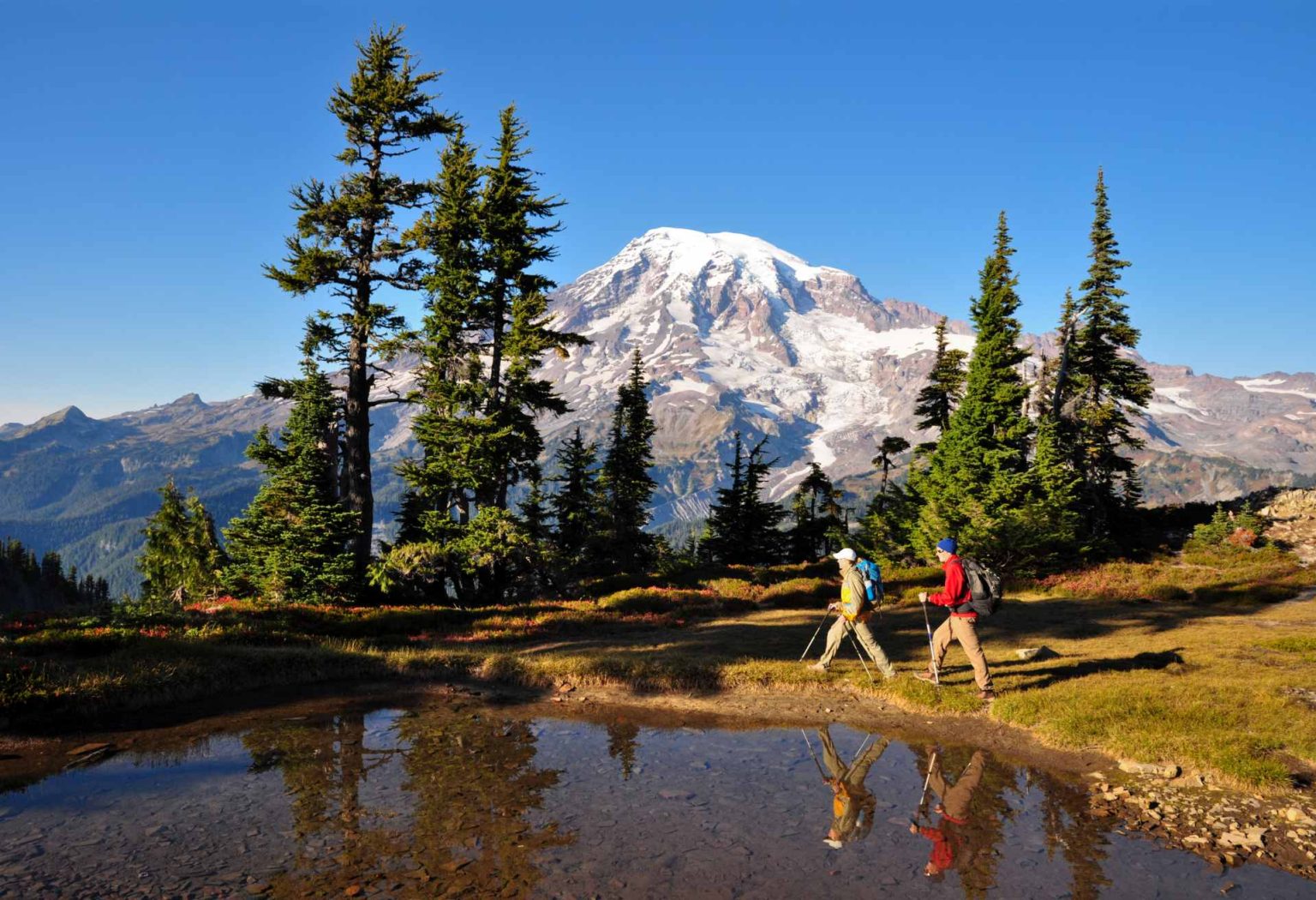With the growing awareness of climate change and the need for sustainable living, nature tourism has become a popular option for tourists looking for deep experiences that immerse them in the natural world. The travel business is changing as a result of this type of tourism, which is defined by its emphasis on animals, natural settings, and environmentally beneficial activities. Here, we examine current trends in nature tourism and their potential future effects.

Environmentally Conscious Travel
The move toward more environmentally friendly travel is one of the most notable trends in nature tourism. Travelers are choosing more and more sustainable locations and lodgings as concerns about climate change and environmental damage grow. Reducing carbon footprints, aiding in conservation efforts, and booking accommodations in green-certified hotels are examples of eco-friendly travel strategies.
There are more eco-lodges and sustainable lodging options available worldwide. These facilities frequently use composting and recycling to reduce trash, as well as renewable energy and water saving techniques. They support local economies and lessen the environmental effect of long-distance transportation by buying food locally. This pattern demonstrates a larger dedication to reducing tourism’s negative environmental effects while optimizing its positive effects on local economies.
Tourism for Wildlife
Another important facet of nature tourism is wildlife tourism, which gives visitors the opportunity to see and engage with animals in their natural environments. Wildlife tourism offers distinctive and life-changing experiences, such as whale watching in the Pacific and safaris through Africa. But this trend also makes sure that the very animals and natural areas that draw tourists are not harmed by these kinds of activities.
With an emphasis on the preservation and conservation of wildlife, ethical wildlife tourism is becoming more and more popular. This entails following rules that reduce the negative effects of humans on animals and their habitats, funding conservation initiatives, and informing visitors about the value of biodiversity. In this field, ethical operators play a critical role by offering sustainable experiences that promote a greater respect for wildlife.
Adventure Travel
Adventure tourism is becoming more and more popular among thrill-seekers and outdoor enthusiasts. It is strongly related to nature tourism. Engaging in outdoor pursuits like hiking, trekking, kayaking, and mountain biking presents both physical obstacles and the chance to fully experience breathtaking natural environments. Around the world, this movement is resulting in the construction of new parks, trails, and adventure hubs.
Adventure tourism is increasingly focusing on areas with harsh landscapes, such Patagonia, the Rockies, and the Himalayas. Additionally, multi-day activities that offer a deeper immersion into the natural environment and a more profound relationship with nature, such as long-distance walks and expedition-style excursions, are becoming increasingly popular.
Tourism Based on Culture and Community
An increasing number of people are opting for the more comprehensive and deeper experience that comes from combining cultural events with environmental tourism. Through participation in tourism-related activities, community-based tourism projects enable visitors to engage in customs, discover local cultures, and frequently stay with local families.
Both visitors and the host towns profit from this trend. It gives visitors genuine experiences and a better comprehension of the cultural background of scenic locations. It stimulates the preservation of natural areas and cultural heritage while also opening up economic prospects for the surrounding populations. Instances include tourism directed by indigenous people in the Amazon and the Arctic, where travelers can learn about customs and help environmental conservation.
Digital Reduction and Health Travel
Travelers are increasingly looking for digital detox and wellness experiences that let them disconnect from technology and re-establish a connection with the natural world. Focusing on both physical and emotional well-being, wellness tourism frequently includes experiences such as yoga retreats, meditation, forest bathing, and lodging at tranquil natural resorts.
Wellness tourism is especially drawn to places with a reputation for peace and natural beauty, like Japan’s omens and Iceland’s hot springs. These places provide organic food, natural therapies, and sustainable lifestyle options that support overall health and well-being.
Explore More: Interpreting the Importance and Effects of Event Tourism
Technology’s Place in Nature Tourism
Even while going on a nature tour frequently means disconnecting from technology, technological improvements are improving the management and experience of nature tourism. By providing virtual tours, virtual reality (VR) and augmented reality (AR) are opening up remote natural sites and helping people appreciate them better.
Technology helps with sustainability initiatives as well. Travelers can make responsible plans by using apps and platforms that offer up-to-date information on weather forecasts, trail conditions, and wildlife observations. Drones are utilized in conservation to survey vast areas and monitor wildlife, preventing human activities from upsetting delicate ecosystems.

Obstacles and the Prospects
A few of the difficulties facing nature tourism are the possibility of overtourism and the effects of climate change. In attractive natural areas, overcrowding can harm ecosystems and lower the standard of the visiting experience. To lessen these effects, sustainable practices and efficient management techniques are crucial.
A major threat to the wildlife and natural environments that are essential to nature tourism is climate change. In order to solve this problem, sustainable practices must be promoted and the carbon footprint of tourism must be decreased. The future of nature tourism hinges on striking a balance between the need to maintain and protect the environment and the desire for exploration.
In summary
Nature tourism is more than just a fad; it’s a movement toward responsible and sustainable travel. The travel and tourism sector can contribute to a more sustainable and fulfilling travel experience by adopting environmentally friendly practices, encouraging the protection of wildlife, including cultural activities, and making use of technology. Nature tourism will continue to develop, providing opportunities for both environmental protection and exploration as visitors grow more aware of their impact on the environment.








